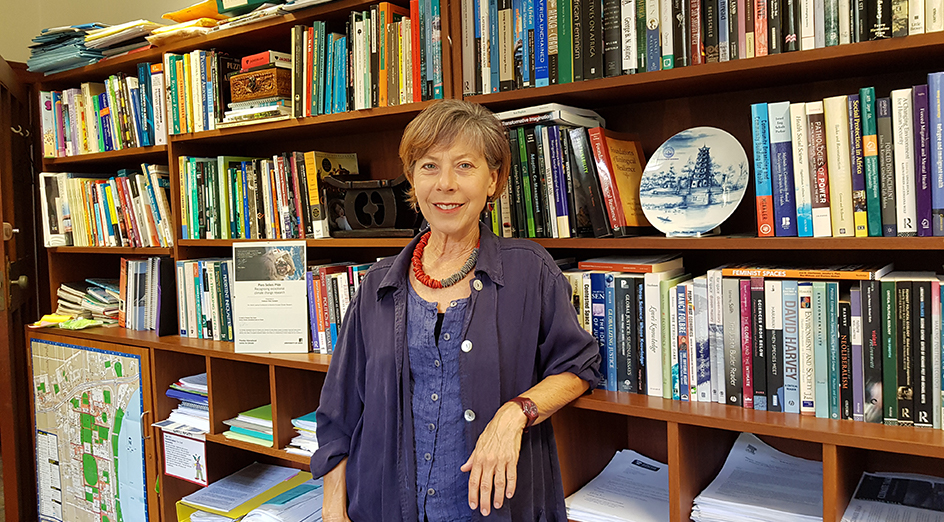
Professor Petra Tschakert explains why universities have a critical role in tackling climate change.
In 2019, the Oxford Dictionary chose climate emergency as its word of the year. Hundreds of jurisdictions declared climate emergencies around the world, from Western Australia’s City of Cockburn to New York City, and from Bangladesh to the European Union. Young people flooded the streets with extraordinary climate strikes and marches. The Global Week for the Future counted 6–8 million participants in about 150 countries – arguably the largest climate strike in history. Australian protestors requested no new coal and gas projects, commitments to renewable energy and a just transition to a livable and responsible net-zero-emissions future. 2019 also brought us the first Climate Justice Union, here in WA, driven by concerned citizens ranging from farmers and firefighters, to students and doctors.
While there is no doubt 2020 is the year of the pandemic, the horrific images and lived experiences of Australia’s 2019/20 Black Summer will be etched forever into our minds. How are we to grasp 3 billion animals (not counting insects) displaced or killed by 15,000 raging fires? How are we to make sense of the indisputable warming trend – global heating – and the increasing frequency and severity of extreme events, explicitly noted in the recent Bushfire Royal Commission? There are no easy answers.
Our students demand, rightly so, educational offerings that bring climate change from the sphere of cutting-edge modelling into the classroom. This is not only to better understand the origin of natural hazards such as cyclones, heatwaves, floods and droughts, it is also to comprehend, and ultimately contest, the political and justice aspects that shape irresponsible policymaking, unsustainable lifestyles, reckless exploitation and unfair burden sharing. These aspects put already vulnerable populations at even higher risk, while the most affluent citizens retreat into gated climate-resilient bubbles. What COVID-19 and the Black Lives Matter movement of 2020 have taught us is that pervasive inequalities, along the lines of gender, race, class, ethnicity, indigeneity, age, sexuality and (dis)ability, determine who and what will suffer most. At the same time, nobody is immune and not one single being should be expendable.
As a human-environment geographer who studies equitable climate change adaptation, intangible losses and inclusive development pathways, I was tremendously inspired when I read about Teach the Future, an initiative spearheaded by United Kingdom university students asking for a Climate Emergency Education Bill. I am equally enthused by our students’ determination to commit to climate change as one of the two Grand Challenges for 2021‒23. I witness the same eagerness in many of the 200+ students in my first-year unit called GEOG1104 Disasters!, and get a kick out of designing innovative risk management games. I am thrilled to see how students in our new postgraduate unit on the Sustainable Development Goals discover the many linkages between climate change, gender equality, biodiversity, poverty eradication, just societies and more, and sketch out empowering and dignified alternatives for the future they want.
There is genuine appetite, not just for individual units, but for comprehensive courses on climate justice, resilient cities, climate ethics and law, and responsible living in this era we call the Anthropocene. It is dawning on most of us that switching to energy-efficient lightbulbs will not be sufficient. What we need instead are critical tools and reflexivity to overcome eco-anxiety and grapple with the difficult ethical questions the climate crisis throws at us: what is fair and for whom; how to make trade-offs between the many things we value, knowing not everything can be saved; and how to grieve together while nourishing responsibility, care and hope?
Our newly established Climate Change Community of Practice brings together academic and professional staff to tackle these and related questions and act as role models in this unprecedented emergency. Let us ensure that we as educators are equipped to teach effectively and empathetically in and about the climate crisis, can foster our students’ courage in navigating this uncertain future, and get them ready for the job of all jobs.
Professor Petra Tschakert
Department of Geography and Planning
Coordinating Lead Author for the Intergovernmental Panel on Climate Change (IPCC), 2014 Fifth Assessment Report, Working Group II, and 2018 Special Report on 1.5°C Global Warming
2019 Recipient of the Piers Sellers Award for word-leading contributions to solution-focused climate research
Representative of the Climate Change Community of Practice on the UWA Sustainability Committee
